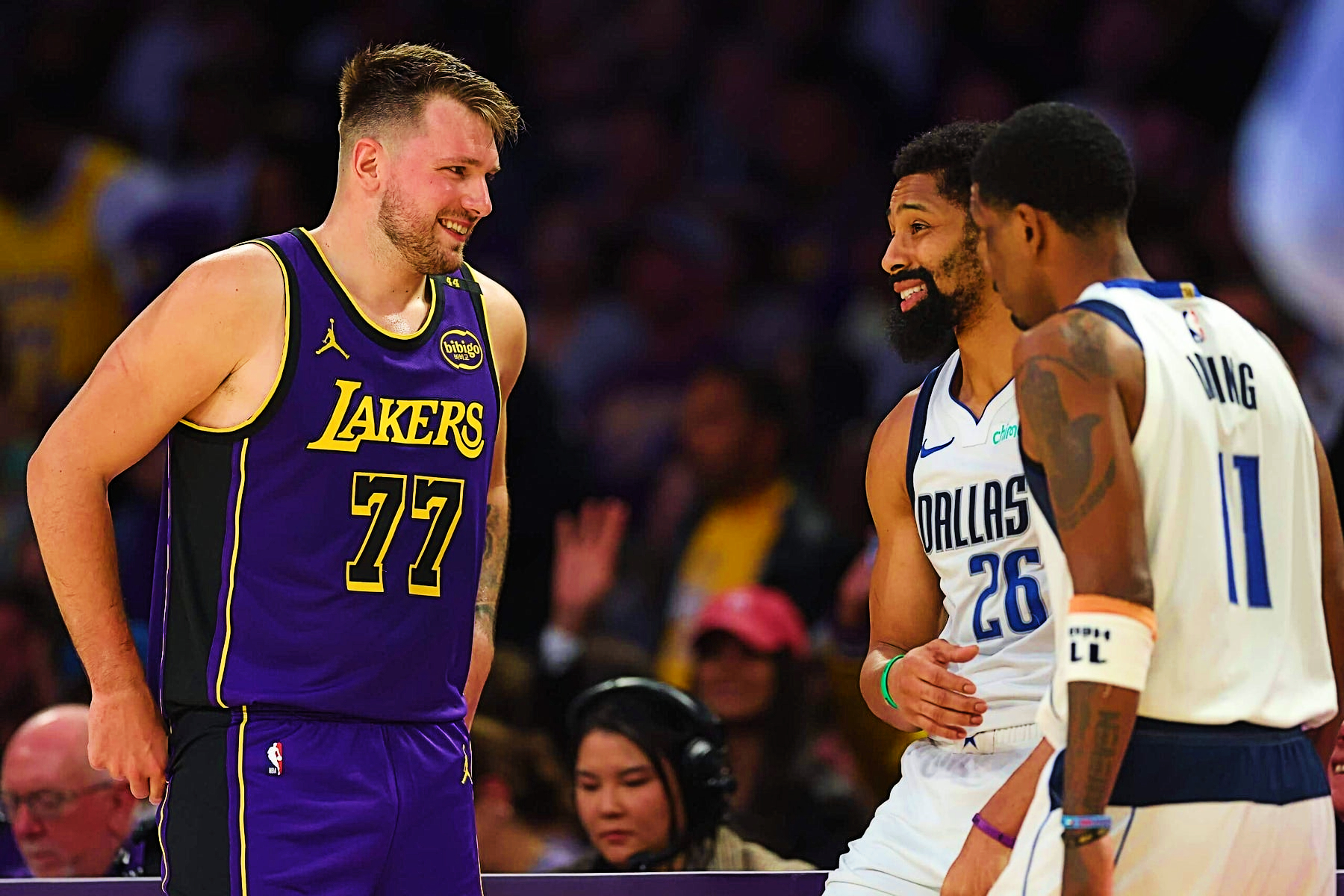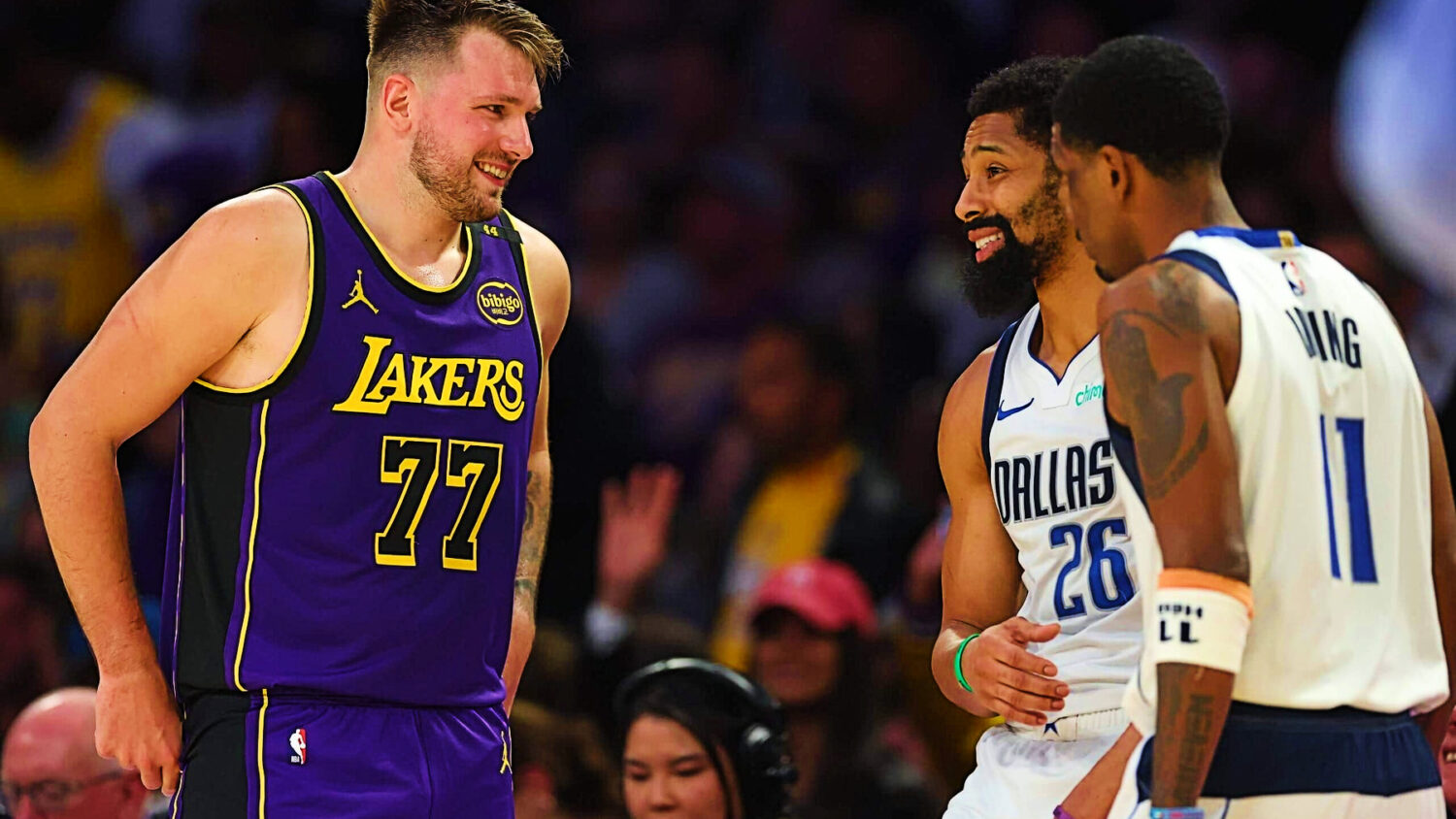Server
How the Luka Dončić Trade Could Change the Course of Basketball History for the Mavericks
Why the Luka Dončić trade could define a generation — for the Mavericks. The recent seismic shift in the NBA, marked by the unexpected trade of Luka Dončić from the Dallas Mavericks to the Los Angeles Lakers, has left basketball fans and analysts alike grappling with the far-reaching implications of this monumental move. In an era where talent is often traded like commodities, this specific transaction stands out not just for its shock value but also for the potential ramifications it holds for both franchises involved and the greater landscape of the league.
As we delve deeper into this topic, it’s essential to explore why this trade is more than just a change of jerseys for one of the game’s brightest stars. It symbolizes a moment of reckoning for the Mavericks, offers the Lakers a chance at legacy redemption, and may reshape the NBA’s future for a new generation of players. Let’s unpack what this means in terms of team dynamics, player development, and the evolution of the NBA itself.

Why the Luka Dončić Trade Could Define a Generation — for the Mavericks
When Luka Dončić was traded, it shook the basketball world to its core. This was not merely another trade; it felt like a cataclysmic event that would reverberate throughout the history of the sport. The Mavericks, who had pinned their hopes on Dončić as their franchise player, now find themselves at a crossroads. It’s crucial to consider how this trade signifies a shift in strategy and philosophy for the organization.
Impact on Team Dynamics
The impact of Luka Dončić’s trade goes beyond his individual talent; it affects the entire team dynamic. The Mavericks had built their roster around him, investing heavily in creating a system that would capitalize on his unique skill set. With Dončić now donning the purple and gold of the Lakers, the Mavericks must recalibrate their identity.
Without their cornerstone player, they face a significant challenge in rediscovering their competitive philosophy. Will they rely on a collective effort to fill the void? Or will they pursue other marquee names to take Dončić’s place?
Transitioning into a post-Dončić era requires strategic planning, innovative coaching, and perhaps a recommitment to developing younger talents. The Mavericks have traditionally found success through strong drafts and smart trades; can they replicate that process without their premier player? The answers to these questions will not only define their present but also lay the foundation for their future.
Cultural Shift Within the Organization
The trade represents more than just a change of personnel; it signals a cultural shift within the Mavericks’ organization. Under the leadership of General Manager Nico Harrison and Coach Jason Kidd, the Mavericks must reassess their values and standards. Dončić was seen as a generational talent, and his departure prompts a reevaluation of what it means to be a Maverick.
Did the organization fail to create an environment conducive to Dončić’s growth? Were there missteps in player management or developmental strategies that led to this parting? As the Mavericks navigate this transition, they must foster a culture that attracts and retains top talent while simultaneously holding players accountable.
If they succeed, they could redefine what it means to be a successful franchise in the modern NBA. But if they falter, the repercussions could echo for years, potentially stunting the growth of the next wave of Mavericks players who arrive in the wake of the Dončić era.
Rebuilding the Roster
With the departure of Luka Dončić, the Mavericks are faced with the daunting task of rebuilding their roster. This situation opens a Pandora’s box of opportunities and challenges. On one hand, they might look to acquire young, promising talent or veterans who can provide immediate impact. On the other, they need to be cautious about making hasty decisions that could further derail their long-term goals.
Identifying the right pieces to complement either rising stars or seasoned veterans requires careful evaluation. They must also consider evolving NBA trends—pace-and-space play, defensive versatility, and high-IQ basketball—that necessitate a diverse skill set from all players.
Furthermore, the Mavericks may explore the trade market for existing stars looking for a fresh start, thereby accelerating their trajectory back to contention. However, the challenge remains: any new acquisitions must fit seamlessly into what they want to become as a franchise moving forward.
Long-Term Legacy Considerations
The Luka Dončić trade is not solely about immediate impacts; it brings into sharper focus the long-term legacy of the Mavericks organization. If they mismanage this critical juncture, they risk becoming irrelevant in a hyper-competitive league. Conversely, if they leverage this moment effectively, they could establish an enduring legacy that shapes their identity for generations.
This understanding of legacy extends beyond championships. It encompasses fan engagement, community involvement, and global appeal—the very fabric that binds an organization to its supporters and the game itself. Successful franchises cultivate relationships that transcend mere wins and losses; they engage with communities and create narratives that resonate.
As the Mavericks find themselves at this pivotal moment, they must frame their narrative carefully, ensuring that future generations of players and fans understand and appreciate the significance of what it means to be a Maverick.
Lakers and the NBA
The ripples from the Luka Dončić trade don’t end with the Mavericks; they reach far and wide, touching the Los Angeles Lakers and the broader landscape of the NBA. This blockbuster move is not just a reshuffling of talent; it poses critical questions about legacy, team composition, and the future trajectory of both teams involved.
Embracing Newfound Stardom
For the Lakers, acquiring Luka Dončić represents an opportunity to embrace newfound stardom. As one of the most recognizable franchises in sports, they have historically thrived on having elite talent. With LeBron James nearing retirement, Dončić becomes the centerpiece for the next era.
The question now is how quickly he can assimilate into the Lakers’ culture. He possesses a unique blend of skills that align perfectly with the team’s ethos, but will he be able to withstand the scrutiny of being a Laker?
In the spotlight of Hollywood, Dončić’s experiences will be magnified. The pressure to perform will be immense, and it’ll be intriguing to see how he adapts to this new chapter. Adapting to a market that thrives on drama also entails learning how to manage expectations, both internally and externally.
Partnering with Legends
One of the most compelling narratives surrounding Luka Dončić’s arrival in Los Angeles is the potential partnership he could form with LeBron James. Their union could redefine offensive strategies and offer an exciting blend of creativity and experience.
There is immense potential for synergy; however, this partnership comes with a set of complexities. Both players are accustomed to being the focal point of their respective teams and adapting to share the spotlight will require deliberate effort.
For Dončić, playing alongside a legend like LeBron means absorbing invaluable lessons and wisdom, which could accelerate his growth as a player. For LeBron, sharing the court with a rising star allows him to conserve energy and focus on a broader vision for the team.
Ultimately, the success of this partnership will depend on their ability to communicate openly, establish chemistry, and put the team’s needs above personal ambitions.
Impact on the NBA Landscape
The ramifications of the Luka Dončić trade extend beyond just the Mavericks and the Lakers; they have the potential to reshape the NBA’s landscape as a whole. The NBA is constantly evolving, with superstars forming alliances and teaming up in pursuit of glory.
Dončić’s move to Los Angeles could trigger a domino effect, influencing how teams approach trades and free agency in the coming seasons. Other franchises may feel compelled to act swiftly to secure top-tier talent, fearing they will be left behind in the arms race for titles.
Additionally, this trade could lead to shifts in player dynamics within the league. Are other young stars feeling the pressure to follow suit and request trades in search of greener pastures? The narrative may shift towards the idea of embracing big markets over staying loyal to smaller organizations, a concept that could alter the balance of power in the league.
Fan Engagement and Cultural Influence
The contrast between the Dallas Mavericks and Los Angeles Lakers in terms of fan engagement and cultural influence cannot be overlooked. The Lakers boast an expansive reach, attracting celebrity attention and a passionate fan base that elevates the team’s profile.
With Dončić in tow, the Lakers gain not just a superstar but also a bridge to international markets. Dončić’s popularity extends well beyond American borders, offering the Lakers an opportunity to tap into global fanbases.
Conversely, the Mavericks must work diligently to maintain and grow their local support while navigating the fallout from losing one of the league’s premier players. Establishing community connections while striving to build a winning culture will be paramount to retaining fan loyalty during this tumultuous time.
Conclusion
In summary, the Luka Dončić trade is a watershed moment for the NBA, laden with meaning and implications that extend across the league. Why the Luka Dončić trade could define a generation — for the Mavericks, Lakers and the NBA encapsulates the profound transformations taking place.
Both teams face unique challenges and opportunities as they chart their courses moving forward. While the Mavericks must redefine their identity and rebuild their roster, the Lakers stand at a precipice of greatness, armed with a new leader who possesses the potential to etch his name among legends.
This pivotal trade is not merely a swapping of talent; it is a defining moment that will shape the trajectories of multiple franchises, influence player dynamics, and rekindle conversations about loyalty and ambition in the NBA. As Luka Dončić dons the colors of the Los Angeles Lakers, the entire basketball world watches closely—witnessing a moment that could indeed define a generation.

